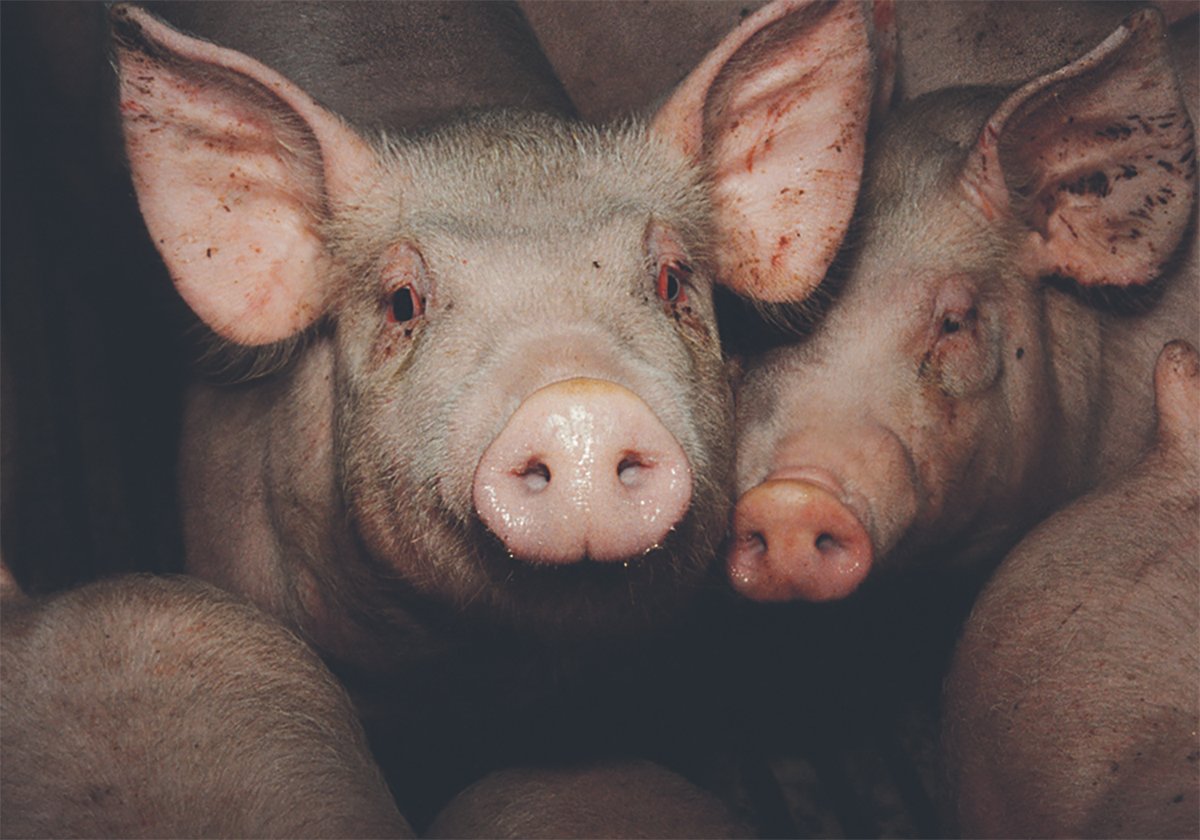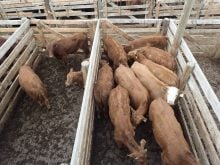BEISEKER, Alta. – When Beiseker farmer Kenton Ziegler went to CN Rail’s information day he was hoping to get some straight answers about future freight rates.
There were no answers. CN officials told those at the Beiseker session Feb. 21 that there is an uncertain climate in the transportation industry as the federal government attempts to reform a system of regulations that many claim is costly and confusing.
Farmers at the meeting did not appear afraid of change in the form of deregulation or rewriting of the Western Grain Transportation Act. But they are concerned reform will mean higher freight rates and lower farm profits.
Read Also

The Western Producer Livestock Report – October 30, 2025
Western Producer Livestock Report for October 30, 2025. See U.S. & Canadian hog prices, Canadian bison & lamb market data and sales insights.
“Somebody has to pick up the slack and it’s going to be the farmer,” said Ziegler. “If the transportation costs us more, our net will be less.”
Interested in efficiency
Greg Keon, grain train manager for CN, said the company welcomes deregulation and would be interested in privatization if it meant greater efficiency. He also assured farmers that freight rates would not be exorbitant because such increases would drive both CN and farmers out of business.
Keon said CN Rail can survive whether the western grain transportation subsidy is paid to railroads or producers. But the corporation needs some definite answers before it can buy more cars, and before it introduces “just-in-time” delivery, car upgrades or other service improvements.
“If the government is going to deregulate the rates, it has to deregulate the railways also. It can’t deregulate the price and keep our high fixed costs,” said Keon.
To shave expenses, CN wants the go-ahead to abandon more branch lines and the flexibility to adjust rates to changing market situations.
Other commodities hauled by CN like coal and lumber have been deregulated. The corporation is able to be more flexible with rates when market conditions shift, said Keon.
More changes pending for CN include scheduled service where specific trains would leave at the same time every week, with the goal of improving car turnaround time. In Alberta car turnaround time to the West Coast is 14 to 18 days.
Keon said scheduling would also reduce congestion at grain gathering hubs.
Firm schedules would help CN implement “just-in-time delivery.” Experiments have been done at Prince Rupert for the last six months with co-operation from grain companies, CN and the Canadian Wheat Board.
Using a computer program called the electronic data interchange, just-in-time delivery would allow the railroad to pinpoint grain car locations and deliver them directly to points where they are needed. The system would also determine when ships are coming into port so trains can meet the vessels for quick loading.















